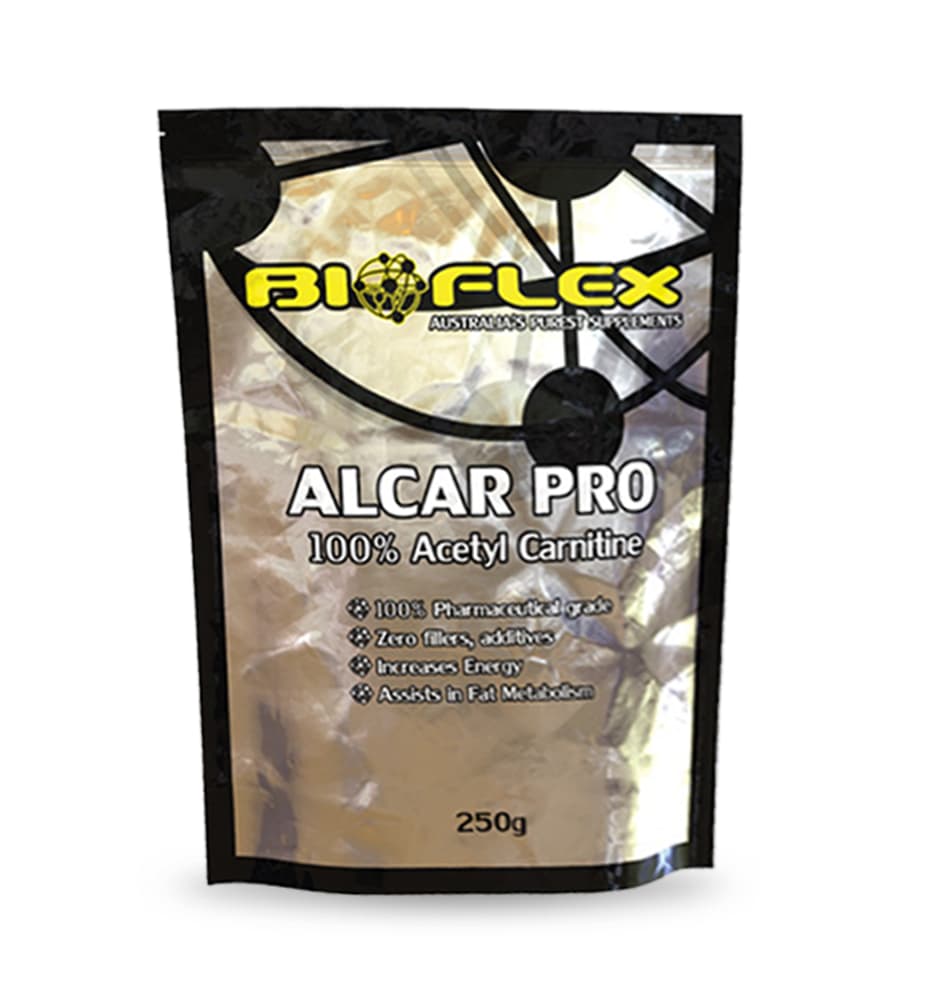Acetyl L-Carnitine (ALCAR)

Acetyl L-Carnitine is a natural fat burner known to help reduce fat deposits in the body, by increasing the transportation of fatty acids into the mitochondria, in order to be used as a source of energy. Supplementing with Acetyl L-Carnitine and an effective thermogenic fat burner, alongside daily exercise and a well-balanced nutrition plan will help you to reach your weight loss goals faster.
Carnitine is an amino acid that is synthesized in the liver and kidneys from lysine and methionine. Its major biochemical function is to facilitate the transport and metabolism of long-chain fatty acids into the mitochondria for beta-oxidation and energy generation.
There is extensive research on carnitine, as seen in the following research overview. The focus is on athletic performance and enhanced endurance; increased fat metabolism; lowering of cholesterol and triglyceride levels; and heart protection. Because carnitine facilitates fatty acid transport into the mitochondria for oxidation, researchers initially theorized that it is possible that elevated carnitine levels would permit a greater/faster transport of fat leading to increased fat oxidation, which may impact weight loss and/or endurance performance. When the body relies on fat for energy this could result in sparing of muscle glycogen and a subsequent enhancement of exercise performance. Researchers also theorized that supplemental carnitine could help to reduce lactic acid accumulation in muscles by buffering pyruvate and, therefore, enhance endurance.
Exercise and endurance studies are ongoing and researchers express difficulty in measuring results. However, unequivocal results in kidney dialysis patients show that low carnitine levels in the dialysate can lead to elevated levels of blood lipids. Similarly, studies of heart disease patients have shown that carnitine supplements (2g/ day over 6 months) can reduce cholesterol and triglyceride levels. In one important study among patients who suffered a heart attack, carnitine supplements (2-3 g/day over 4-8 weeks) resulted in a reduction in the amount of damage to the heart muscle and an increase in heart muscle viability. In angina sufferers, carnitine reduces the incidence of angina and cardiac arrhythmias as well as reduces the need for anti-angina and anti-arrhythmic medications. In addition, carnitine (2g/ day for 6 months) can also increase exercise tolerance in patients with angina – meaning that they can exercise longer and at a higher level before experiencing chest pain.
Dietary Sources: meat and dairy products.
Daily Reference Intake: There is no DRI or RDA for carnitine.
Side Effects: Carnitine supplementation has an excellent safety record. Doses of 2-6 grams per day over a period of 6 months have been studied with no observed adverse side effects. The D-Carnitine, inactive form is not recommended.
Source from: